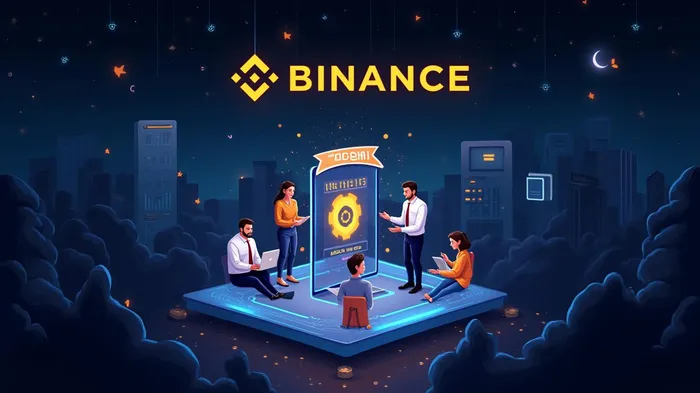Binance Launches TCOM Platform for Web3 Content Licensing
Binance has launched the TCOM Global IP Creation platform on its blockchain, marking a significant development in the realm of Web3 content licensing. This platform enables creators to generate new works based on iconic characters such as Astro Boy and Black Jack, submit these creations for community voting, and earn airdrops. Winning entries can be licensed for use in other blockchain projects, fostering a collaborative IP system that could revolutionize digital media rights management and pave the way for user-driven innovations in IP management.
The TCOM Global IP Creation platform is part of the broader ACG WORLDS project, overseen by Tezuka Productions and ACGWORLDS Co., Ltd. This initiative supports a variety of applications, including GameFi appsAPPS--, NFT series, and anime-themed token launches. The platform is designed to facilitate the remixing and creation of new content based on Japanese anime and comics, providing users with tools for artistic expression and ownership. On-chain rewards and licensing mechanisms make the process of remixing IP more engaging and rewarding, aiming to boost user creativity and content value.
TCOM Global IP Creation was selected for the Binance MVB program’s Season 9 cohort, which supports early Web3 projects with mentorship, lessons, and funding. The program began with a two-day event in China Hong Kong, offering networking opportunities and exposure at the China Hong Kong Web3 Festival and BNB Super Meetup. Out of over 500 applicants, only 16 teams were chosen, highlighting the program’s high standards and value. This selection enhances TCOM’s credibility and growth prospects within the Web3 ecosystem.
The Binance blockchain serves as a testing ground for decentralized apps and digital media ideas, providing projects like TCOM Global with tools for token design, fundraising strategies, and platform scaling. The platform’s backing offers a reliable base for broad project adoption, supporting growth and innovation across the ecosystem. Developers can test new media ideas without concerns about server reliability, helping to bring creative blockchain projects to global audiences.
The TCOM platform introduces new economic models for earning in Web3. It allows creators to share licenses across projects and earn rewards through airdrops for community-chosen content. This model goes beyond the traditional NFT approach, focusing on collaborative value sharing and testing new digital content economics on the chain. Wide distribution and lasting records are built into this blockchain system, providing real benefits from joint licensing and community input. This setup encourages idea sharing and fair revenue splits, supporting lasting recognition for creative contributions.
The MVB program accelerates the development of promising Web3 projects by offering resources for team building, fundraising, and regulatory compliance. Demo Day allows teams to share progress and attract new investment, providing TCOM Global with the backing needed to grow and innovate. Creators benefit from decentralized licensing and airdrops on the Binance blockchain, while community governance gives fans a say in IP development. However, legal questions arise over derivative works on a public network, and market swings and uneven user interest may impact long-term viability. Careful oversight and flexibility remain crucial for lasting success.
The addition of TCOM to the Binance blockchain signifies a shift in how content ownership and creation are managed. Traditional IP rules rely on central control and strict licensing processes, whereas community models like TCOM use voting to license and spread authority. This method can drive fresh creative work and wider participation but also raises legal questions about whether remix culture aligns with blockchain rules. Distributed governance makes licensing steps more open and transparent, giving creative teams more input from fans and community members. Regulators may need new rules to handle these on-chain licenses, reflecting the evolving landscape of intellectual property in a tokenized world.

Quickly understand the history and background of various well-known coins
Latest Articles
Stay ahead of the market.
Get curated U.S. market news, insights and key dates delivered to your inbox.



Comments
No comments yet